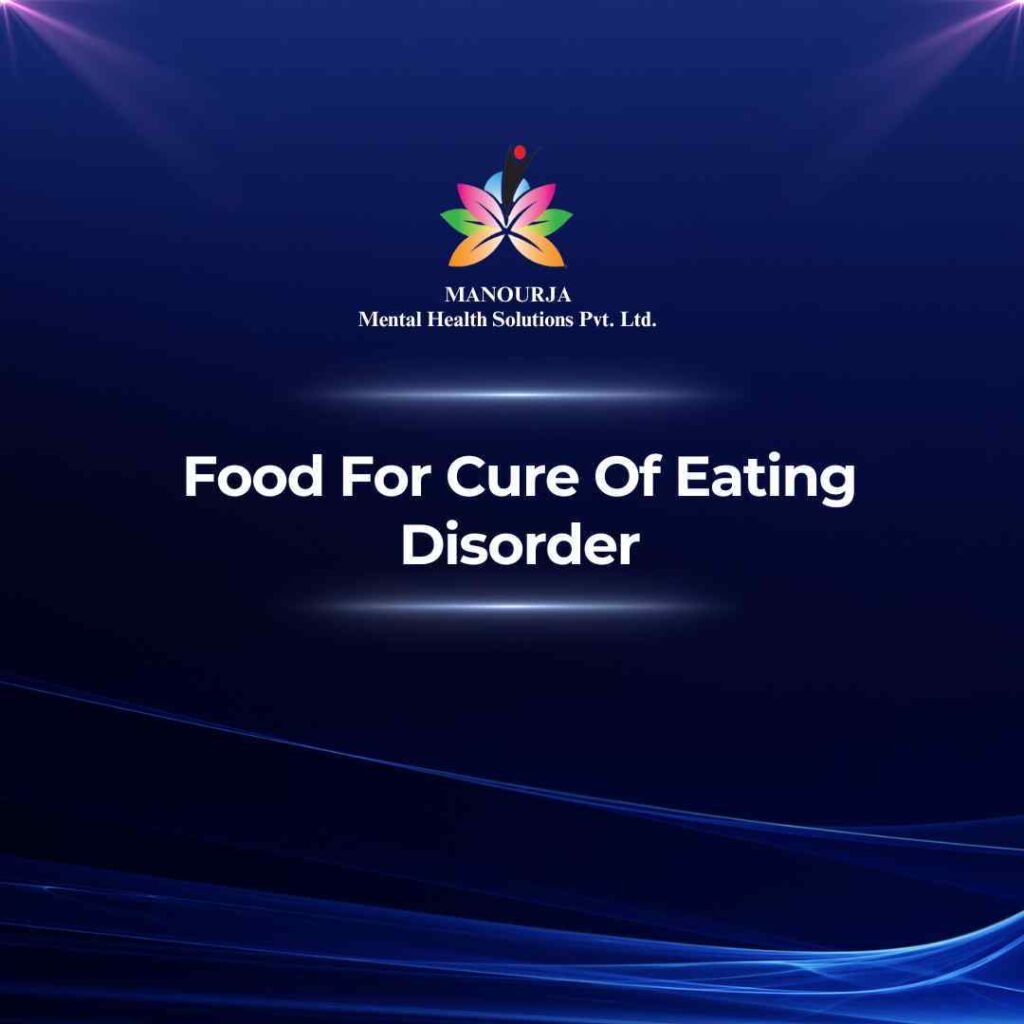Food for Cure of Eating Disorder

It’s important to clarify that no specific food can “cure” eating disorders, which are complex mental health conditions requiring a multifaceted treatment approach, including medical, nutritional, and psychological interventions. However, a balanced and nourishing diet is crucial in the recovery process from an eating disorder. Here are some general guidelines for incorporating foods that can support recovery and help normalize eating patterns:
Balanced Meals
The goal is to reintegrate a variety of foods from all food groups to ensure balanced nutrition. This includes:
- Carbohydrates: Whole grains like oats, quinoa, brown rice, and whole-grain bread and pasta provide essential energy and fiber. Carbohydrates help stabilize mood and prevent energy crashes.
- Proteins: Lean meats, fish, eggs, dairy, legumes, and nuts are important for muscle repair and growth. They also help to regulate hormones and other bodily functions impaired by eating disorders.
- Fats: Healthy fats found in avocados, nuts, seeds, olive oil, and fatty fish like salmon are crucial for brain health, hormone production, and cell integrity.
- Fruits and Vegetables: A wide variety of fruits and vegetables will supply necessary vitamins, minerals, antioxidants, and fiber, which are often lacking in the diets of those recovering from eating disorders.
- Dairy or Calcium-Rich Alternatives: Adequate calcium intake is important, especially for individuals recovering from anorexia, to support bone health.
Regular Eating Schedule
Eating regularly throughout the day can help stabilize blood sugar levels and reduce urges to binge or restrict. Structured meal plans developed by a dietitian can help individuals gradually adjust to eating regular, balanced meals.
Nutrient-Dense Foods
Including nutrient-dense foods can help correct nutritional deficiencies common in people with eating disorders. This includes fortified cereals, leafy greens, fresh fruits, and foods rich in omega-3 fatty acids.
Adequate Hydration
Staying hydrated is important. Water is best, but fluids can also come from herbal teas, soups, and fruits with high water content like watermelon and oranges.
Mindful Eating Practices
Focusing on mindful eating can improve the relationship with food. This involves eating slowly, savoring each bite, and paying attention to feelings of hunger and fullness. It’s also beneficial to eat in a calm environment and reduce distractions during meals to better connect with the eating experience.
Special Considerations
- Avoiding Triggers: If specific foods trigger unhealthy behaviors, it may be necessary to avoid them during the early stages of recovery.
- Flexibility: Over time, working towards a more flexible approach to eating can help improve the psychological relationship with food and body image.
Professional Guidance is Key
It’s essential for individuals recovering from eating disorders to work closely with healthcare professionals such as dietitians specialized in eating disorders. They can provide tailored advice and ensure that dietary changes support not only physical recovery but also psychological well-being.
Overall, recovery from an eating disorder is about more than just food—it’s about learning to listen to the body’s needs, treating food as nourishment, and rebuilding a healthy relationship with food and self-image.
At MANOURJA, we believe in the transformative power of counseling. Our experienced therapists offer a safe and supportive space where you can explore your thoughts, emotions, and challenges. Through personalized counselling sessions, we’ll work together to develop coping strategies, build resilience, and achieve lasting positive change. Discover the path to a healthier, happier you with MANOURJA counselling services.
MANOURJA Rehabilitation Services
At MANOURJA, we’re dedicated to helping you in rebuild your life, after difficult times. Our rehabilitation services focus on understanding what you need to move forward, whether you’re recovering from addiction, trauma, or any psychological – social challenges. We create personalized plans, that are all about helping you, regain your strength and find hope again. With a caring team by your side, you’ll have the support to make real progress and take steps toward a brighter, healthier future.
